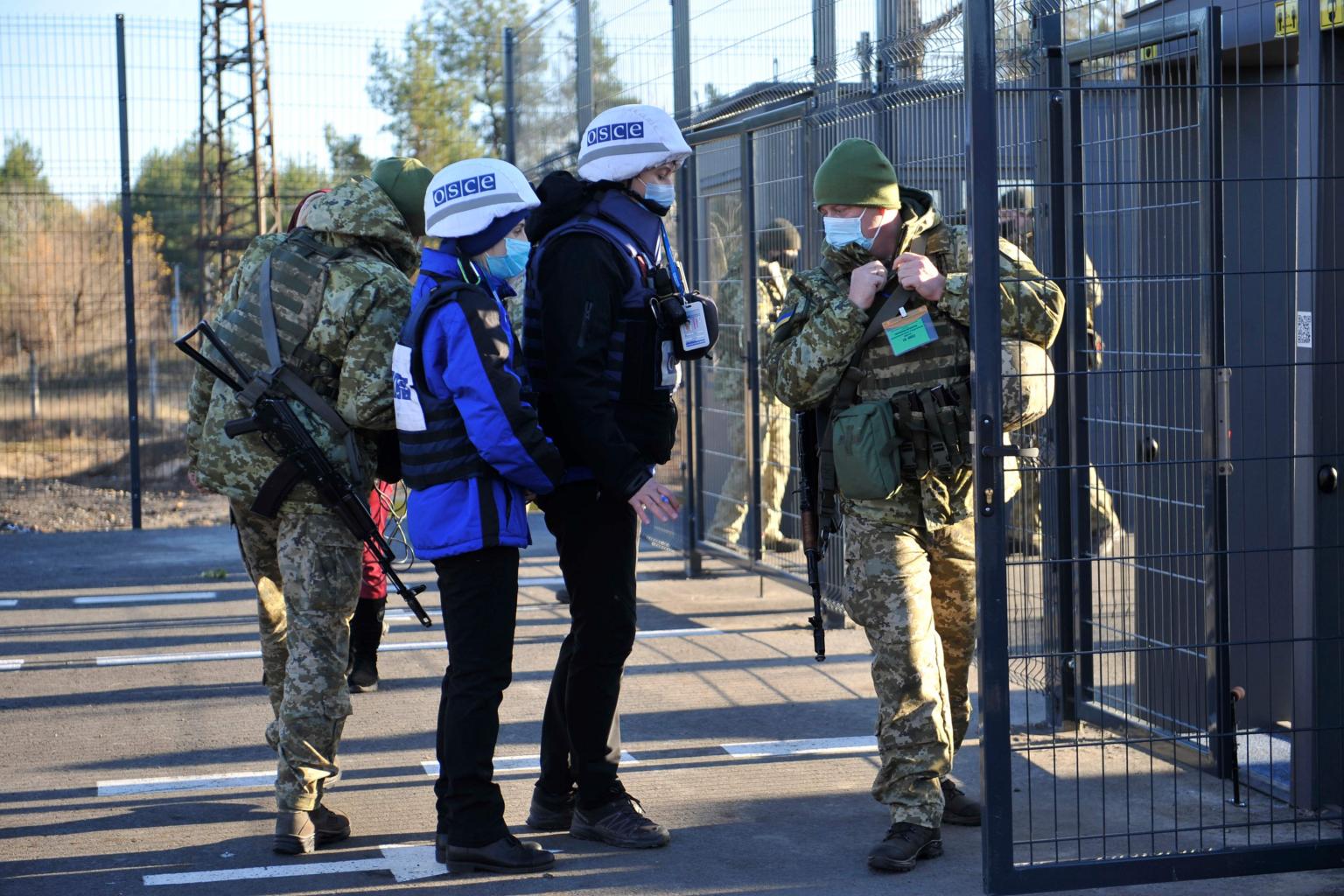Cold War security body OSCE set to fill leadership vacuum
Sign up now: Get ST's newsletters delivered to your inbox

In a photo from Nov 10, 2020, OSCE observers cross a checkpoint as Ukrainian border guards stand guard in Lugansk.
PHOTO: AFP
Follow topic:
VIENNA (AFP) - The international security body OSCE is expected to fill an unprecedented leadership vacuum, during meetings Thursday (Dec 3) and Friday, after it failed to reappoint four of its top leaders in July.
Originally established during the Cold War to foster relations between the Soviet Union and the West, nowadays the OSCE monitors elections, reports on human rights and press freedom, and is engaged in the diplomatic resolution of conflicts, including in Nagorno-Karabakh and Belarus.
European states are now set to give in to Russia's demands on the make up of the new leadership team, in hopes that it would increase the influence of the Organisation for Security and Cooperation in Europe (OSCE).
Though sometimes referred to as a Cold War relic, experts have said that its role has been strengthened in recent years, and point to the opportunities it holds as the largest regional security organisation in the world comprised of 57 members states.
"The weakening of Nato under the presidency of Donald Trump has forced the European allies of the United States to rely on other institutions to assert themselves in the Eurasian space," Mr Nicolas Baladassi, an expert on international security.
Traditionally, the top leadership positions have been held by Westerners, an imbalance Russia and Central Asian countries have long decried as resulting in unfair treatment and "excessive criticism" of their human rights records.
In the middle of July, the OSCE's top four diplomats were forced to vacate their offices when they were not reappointed - usually a formality - leaving the organisation without leadership.
As demanded by Russia, the OSCE is now set to fill one of the positions with a diplomat from a former Soviet state.
The new secretary-general is slated to be Ms Helga Schmid, a German currently serving as the secretary general of the EU's European External Action Services (EEAS), according to Mr James Gilmore, the US ambassador to the OSCE.
Conceding to Moscow's request, Western states hope, would come in exchange for Russian President Vladimir Putin's support on continuing the OSCE's mandate to investigate rule of law issues, something he has long rejected.
In reference to the OSCE's diplomatic role in resolving the conflicts in Nagorno-Karabakh and Belarus, Mr Gilmore said that recent months had "demonstrated the relevance and the importance of the OSCE. This is the one forum that exists, that has everybody in it."

